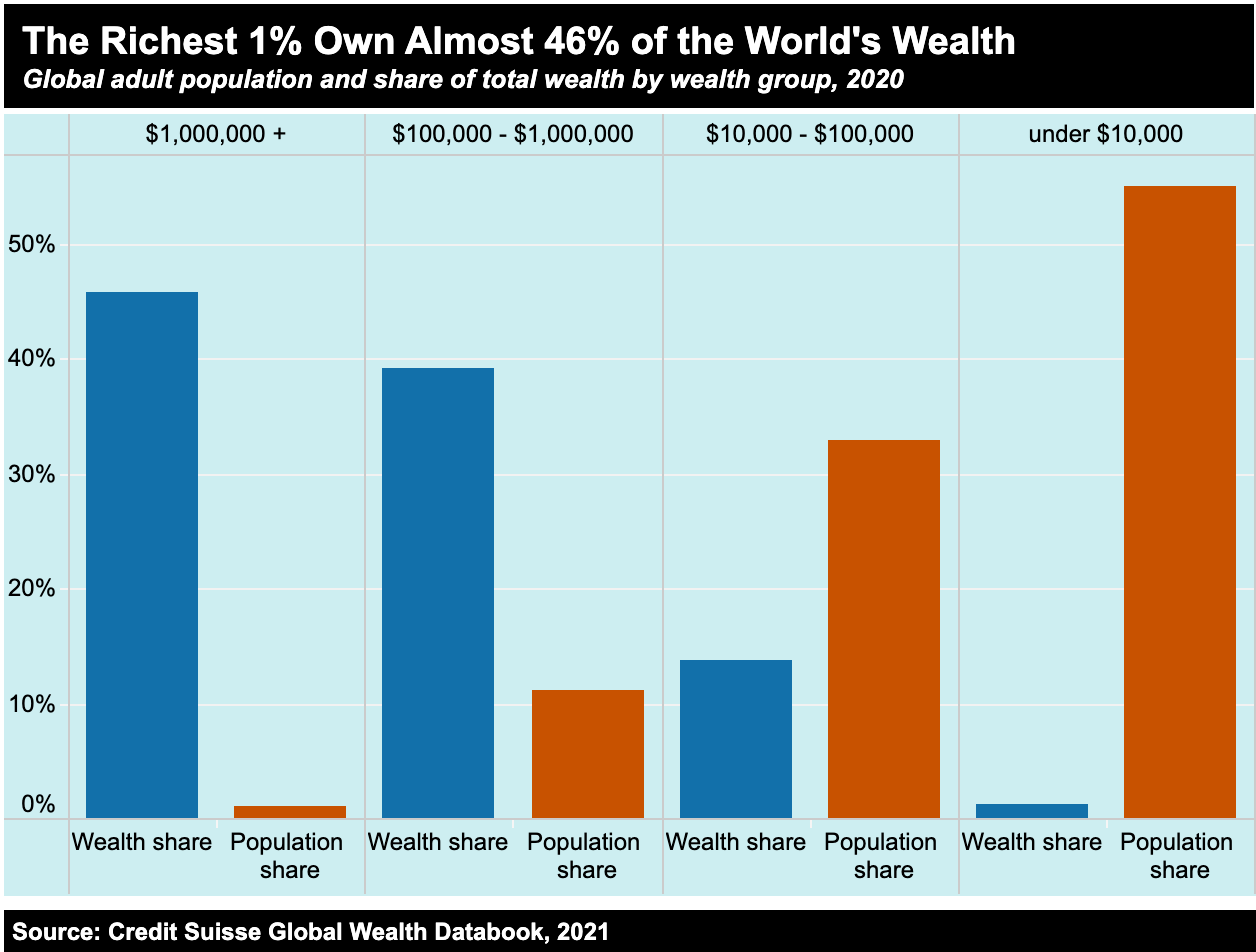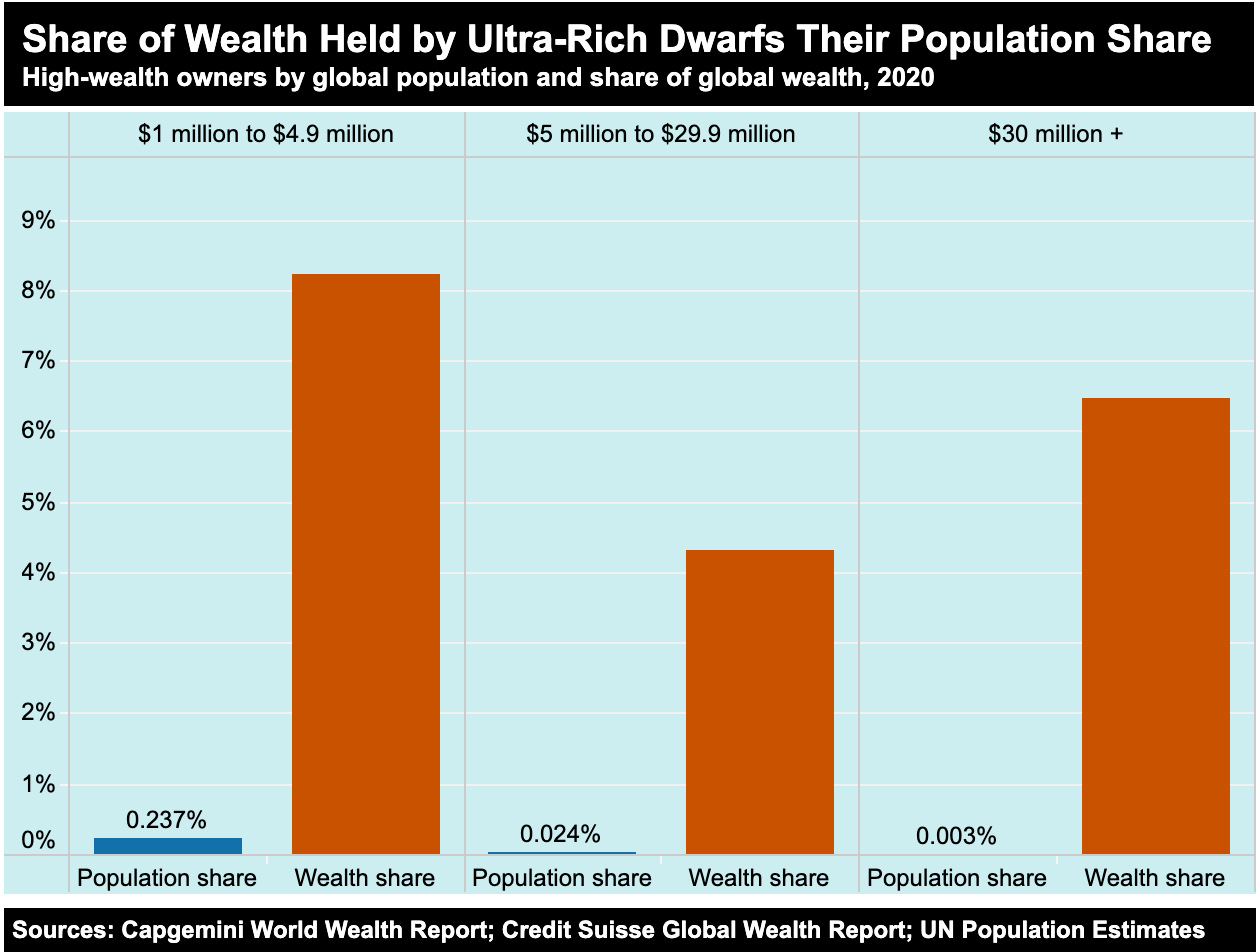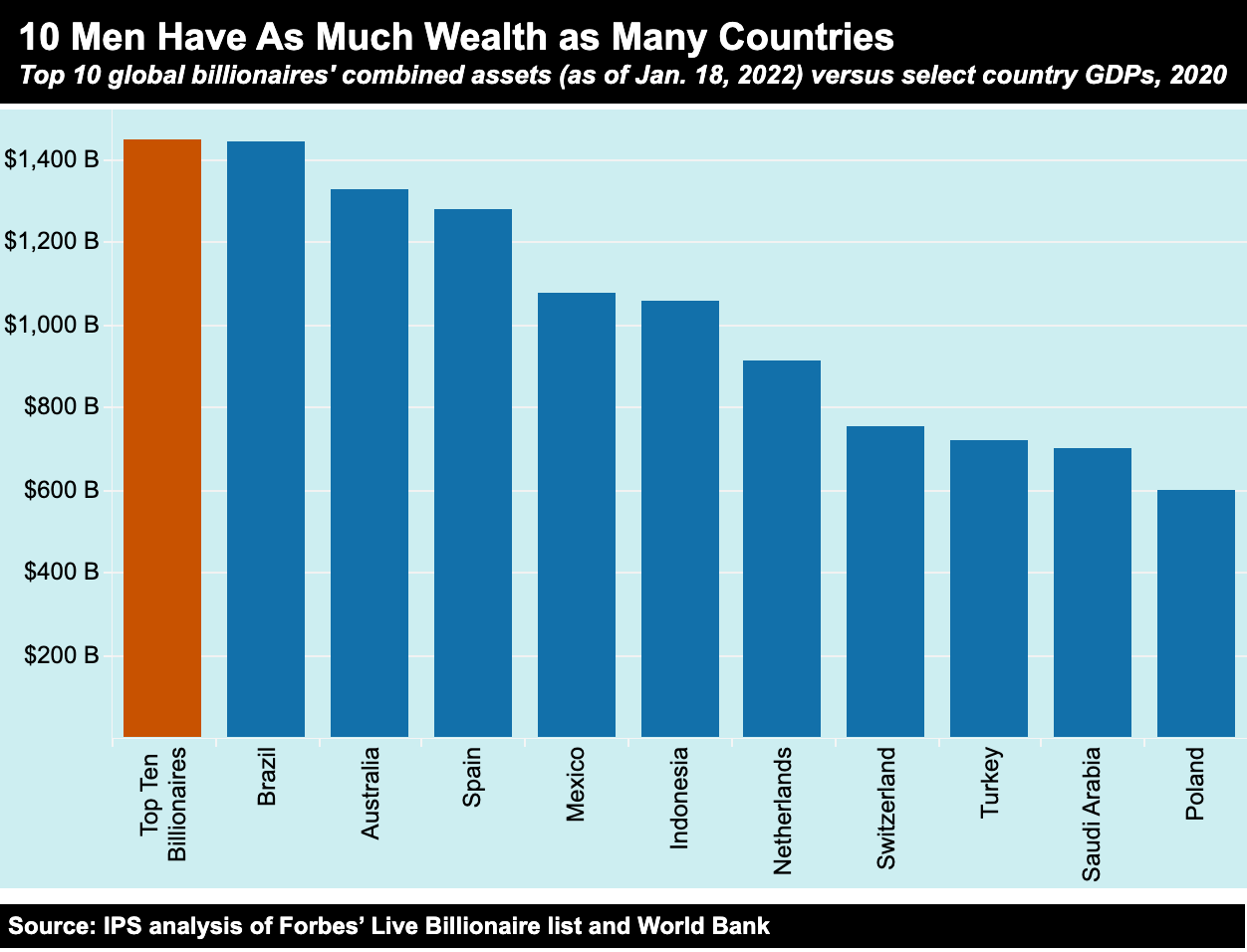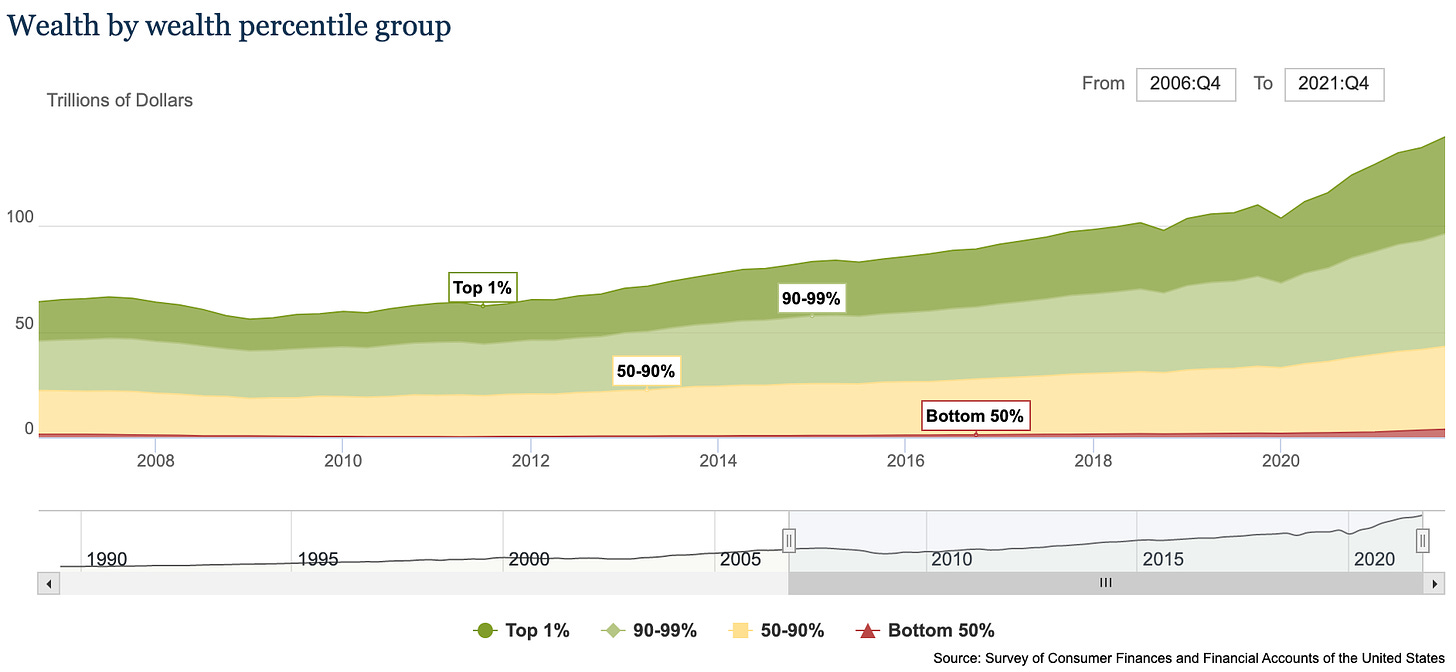Hey friends, welcome back to Think Bitcoin™ for issue #28. As always, if you have any questions or comments, feel free to reach out. You can also find me on Twitter (@TheWhyOfFI).
In this issue:
Headlines/Insights: A letter to my newborn daughter about Bitcoin
Content Round-Up: 1 podcast, 1 article, 1 educational platform
As always, if you find this newsletter interesting or useful, please share it with others who might find it interesting or useful, too!
Headlines and Insights
Normally I spend the week gathering my thoughts, chewing on ideas, and constructing these articles in my head before sitting down to write them on the weekend. On March 17, my wife delivered our baby girl (and our first child) and our lives changed immeasurably. I took some time away from writing to soak up the precious early days of parenthood. Now, returning to the newsletter and re-engaging with the Bitcoin world, I find myself thinking a lot about what I would say to my daughter about Bitcoin, about what it offers her generation, and what life lessons can be gleaned from it. This is my attempt to capture some of those thoughts.
A Letter to My Newborn Daughter About Bitcoin
To my beloved daughter,
Welcome to this world. You are more beautiful and more perfect than I could have ever imagined. I am thrilled that you are here, though you don’t yet know what “here” is. So let me tell you about it.
Right now you are blissfully unaware of so much. There is a lot I want to shield you from and a lot I want to steel you against. To put it bluntly, times are turbulent. Cracks are emerging everywhere and splintering the global order your mom and I have grown up with. To borrow Yeats, fundamental things do appear to be falling apart in undeniable ways. Nevertheless, your mom and I summoned you out of the ether and into this “here,” this reality.
You don’t know it yet, but you are privileged. Global wealth inequality has continued to worsen unsustainably. Though your eyesight isn’t developed enough to see more than 12 inches or so in front of your face, I will submit to you the following charts, which you will be able to understand when you’re a little older.
You are privileged because your parents, though not anywhere close to the top 1%, are much closer to the top end of the curve than the bottom. Absent meaningful change in the global monetary system, this trend of wealth concentration will continue as you grow older.
Confronted with this inequality, with the seemingly predetermined self-perpetuation of it, you will ask questions. Your mom and I will make sure that you do. Why do we have this massive gap between the haves and the have-nots? Why do the benefits and gains of modernity seem to accrue so disproportionately to the haves? What is it that ensures this outcome? How do we course-correct so that more people have access to opportunity and the tools to compete?
The answer to the first set of questions is, quite simply, that we have a monetary system that is manipulable to the advantage of those who are in the position to manipulate it. The way to course-correct is to advance a monetary system that is unmanipulable, a system that treats each participant equally, a system in which king and pauper, privileged and oppressed, wield the same influence over the rules (which is to say none).
Throughout recent history, many have tried to course-correct monetary systems deemed unfair, oppressive, or undesirable. Too often, the proposed (or, rather, imposed) solution is an equally manipulable system with new, preferred manipulators. These attempts have repeatedly failed in historically catastrophic and deadly ways, but the allure of installing a benevolent class of money manipulators (central planners, if you will), has not faded and is, in fact, attracting more and more proponents presently.
Karl Marx, whose thinking inspired a preponderance of these aspiring manipulators, said history repeats itself first as tragedy and then as farce. You will learn about Marx, but when it comes to those interventions that have carried his banner, it is perhaps more accurate to say history, ever the amnesiac, repeats itself only as tragedy and the enduring romanticization of Marxist ideology, despite these tragedies, is increasingly farcical.
But I digress.
Yes, this world is a scary place. But it is beautiful, too. And there is good reason for hope. The endemic wealth inequality, the dire state of the climate, and the grotesque concentration of power may seem and feel too huge and daunting to meaningfully address. But there are now, as I write, a growing number of people working tirelessly to advance a technology (a movement, really) that seeks to do exactly that.
This technology, which is now beginning to take root, and which will fully flower as you progress through your childhood, is called Bitcoin. It is a decentralized, permissionless monetary network that cannot be manipulated by the powerful few. Don’t worry, I’ll explain all this to you in due time. What I want you to internalize is that, despite the myriad perils known and unknown that your generation will confront, there is hope.
Be a part of this hope. Cultivate it, advance it, work to keep it alive. When you stumble upon an idea, like Bitcoin, that can truly transform the world and move it forward, fight relentlessly on its behalf, because an idea with such power will be staunchly resisted by those who benefit the most from the status quo, however unsustainable and destructive that status quo may be. As Oscar Wilde said, “an idea that is not dangerous is unworthy of being called an idea at all.”
Lastly, there are larger lessons to be learned from Bitcoin.
First, as you will find out, proof of work is not merely the best consensus mechanism for a decentralized, permissionless monetary network. It’s also a first-principles approach to life. You have to do the work and prove that you’ve done the work to get results. Your strength and vitality is proof of the work you will have to put in to achieve it. Your intelligence and mental acuity is proof of the work you will have to put in to develop it. Your kindness and empathy is proof of the work you will have to put in to foster it. Your material success, in a fair economic system, should be proof of the work you put in to provide value to society.
Second, you should know that people can vigorously agree on one thing without agreeing on everything. Total, all-encompassing alignment of views, attitudes, beliefs, and opinions is not required for parties to agree on and cooperate to advance something mutually beneficial. Anyone attempting to enforce or instill a homogenous, doctrinal view of the world will myopically pursue the power to implement that view. Bitcoin does not belong to an ideology or a political party. Neither should your mind. It’s okay to disagree with someone while still cooperating on that which you agree. Purity tests are fascistic.
Third, incentives are everything. As Charlie Munger said, “show me the incentives and I will show you the outcome.” A system with bad incentives will yield bad results. Every time. Beware of them, for they tend to be superficially alluring and overly reliant on charismatic individuals. Beware of systems that require, presuppose, or mandate benevolent stewards. These stewards are single points of failure, prone to capture and susceptible to a panoply of corruptions. Implement systems with good incentives into your own life and you will thrive. Advocate for systems with good incentives in society and it, too, will thrive.
We love you more than you know. We will be eternally here for you. And we wish you way more than luck.
Love,
Your father
Content Round-Up
1. “The Bitcoin FAQ with Bradly Rettler,” an episode of the Progressive Bitcoiner Podcast. Rettler is a philosophy professor at the University of Wyoming. He’s also a passionate, deeply knowledgeable Bitcoiner. If you’re new or relatively new to Bitcoin and have lots of what you think are basic Bitcoin questions (e.g. why is it so volatile, is it backed by anything, is it for criminals, etc.), fear not. Dig in to this podcast. Rettler and host, Mark Stephany, tackle all such questions.
2. “One Bitcoin is Your Harvard MBA,” an article by the pseudonymous author, Croesus. I love Croesus’ work. His now-canonical article, “Why the Yuppie Elite Dismiss Bitcoin,” is one of my all-time favorite Bitcoin articles. As someone with three fancy degrees from three fancy institutions of higher learning, it resonated with me in a way few articles before or since have. Anyway, this new piece of his posits that, for millennials and Gen Z, one bitcoin will possess as much value (if not more) than a vaunted MBA from Harvard possessed and produced for previous generations.
3. Looking Glass Education. This is a new platform devoted to teaching people about Bitcoin. I’ve had a lot of fun exploring some of its curated content this week. Seb Bunney has some really great work on there that I recommend checking out.
As always, thanks for reading! If you enjoyed it or found it useful, share this newsletter widely and freely!
“Civilization is in a race between education and catastrophe. Let us learn the truth and spread it as far and wide as our circumstances allow. For the truth is the greatest weapon we have.” -H.G. Wells
See you next week,
Logan
SUPPORT
Send bitcoin to my Strike
SOCIAL
DISCLAIMER: I am not investment advisor and this is not investment advice. This is not, nor is it intended to be, a recommendation to buy or sell any security or digital asset. Nothing in this newsletter should be interpreted as a solicitation, a recommendation, or advice to buy or sell any security or digital asset. Nothing in this newsletter should be considered legal advice of any kind. This newsletter exists for educational and informational purposes only. Do your own research before making any investment decisions.
© Copyright Logan Bolinger







